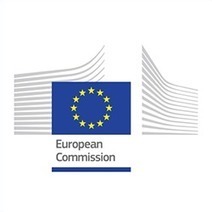Highlights, press releases and speeches
Follow, research and publish the best content
Get Started for FREE
Sign up with Facebook Sign up with X
I don't have a Facebook or a X account
Already have an account: Login
EU GANTS, PROJECT MANAGEMENT
Curated by
nicoleta susanu
 Your new post is loading... Your new post is loading...
 Your new post is loading... Your new post is loading...
|











Given the limited size of the EU budget, the main response will come from Member States' national budgets.
The Temporary Framework provides for five types of aid:
(i) Direct grants, selective tax advantages and advance payments: Member States will be able to set up schemes to grant up to €800,000 to a company to address its urgent liquidity needs.
(ii) State guarantees for loans taken by companies from banks: Member States will be able to provide State guarantees to ensure banks keep providing loans to the customers who need them.
(iii) Subsidised public loans to companies: Member States will be able to grant loans with favourable interest rates to companies. These loans can help businesses cover immediate working capital and investment needs.
(iv) Safeguards for banks that channel State aid to the real economy: Some Member States plan to build on banks' existing lending capacities, and use them as a channel for support to businesses – in particular to small and medium-sized companies. The Framework makes clear that such aid is considered as direct aid to the banks' customers, not to the banks themselves, and gives guidance on how to ensure minimal distortion of competition between banks.
(v) Short-term export credit insurance: The Framework introduces additional flexibility on how to demonstrate that certain countries are not-marketable risks, thereby enabling short-term export credit insurance to be provided by the State where needed.